Hail the Conquering Hero

Brief Synopsis
Cast & Crew
Preston Sturges
Eddie Bracken
Ella Raines
Raymond Walburn
William Demarest
Franklin Pangborn
Film Details
Technical Specs

Synopsis
Woodrow LaFayette Pershing Truesmith sits disconsolately at a bar with his beer. When six Marines, led by Sgt. Julius Heffelfinger, come in, Woodrow buys them all beer because they are short on cash, and the grateful Marines, recently returned from the battle at Guadalcanal, introduce themselves. The soldiers learn that Woodrow's father, also a Marine, died a hero in World War I on the same day that Woodrow was born, and that Woodrow's lifelong dream is to follow in his father's footsteps. Humiliated by his dismissal due to chronic hayfever which occurred over a year before, Woodrow reveals that he wrote to his mother that he was sent overseas, and has not been home since. "Sarge" recalls that Woodrow's father was his own sergeant during World War I, and that he was present the day Truesmith died on the battlefield. Bugsy Walewski, a tough but compassionate Marine who believes that mothers are sacred, is appalled that Woodrow would allow his mother to think that he is in combat, and immediately telephones Woodrow's mother in Oakridge, California. Bugsy impersonates an officer and informs her that Woodrow is a hero and is returning home from Guadalcanal. Led by Sarge, the Marines then escort Woodrow to a train headed for California, and force him to wear his uniform, even though he believes it is against regulations. They then insist on giving him several of their own medals, believing that he will be able to slip quietly into town, impress his mother, and then discard the uniform. Woodrow is mortified when the entire town and four marching bands greet him at the Oakridge train station, and the mayor gives him the key to the city. Woodrow immediately regrets his deception, but the Marines continue to hail him as a hero. Woodrow's former girl friend Libby, whom he had written and told not to wait for him, is now engaged to Forrest Noble, scion of the wealthiest family in town, but is waiting for an appropriate time to tell Woodrow the news. That night, the town's elder citizens, led by Judge Dennis and mayoral candidate Doc Bissell, nominate a stunned Woodrow for mayor. Without actually revealing his deception, Woodrow proclaims his unworthiness, but the supportive crowd that has gathered outside his house thinks that he is only being humble. Forrest's father, a mayoral candidate himself, fires Libby as his secretary after she defends Woodrow in the face of his own character defamation. As Woodrow's campaign supporters celebrate with fervor, Woodrow drinks cooking wine and contemplates his ruin. Libby finally confesses her impending marriage to Forrest, and Woodrow calmly accepts the news as he fears she might be hurt when the truth about him comes out. Woodrow insists he is a phony, but Libby is brokenhearted that he will not fight for her. Noble's political boss, meanwhile, becomes suspicious of Woodrow and cables the Marines for verification of his status. The next morning, in order to avoid the campaign, Woodrow pretends that he has been called back into active service. Bugsy sees through his ruse and loses respect for Woodrow. Woodrow participates in the campaign parade that leads him to the town hall, where Noble and his boss are eager to spread the news of Woodrow's medical discharge. Woodrow unexpectedly confesses to the fraud in an eloquent speech, however, and Bugsy's faith in him is restored. Woodrow then returns home to pack, and Libby, realizing that Woodrow is truly courageous because of his ability to face the truth, breaks off her engagement with Forrest and insists on joining Woodrow in his travels. While they are waiting at the train station, a mob led by Sarge approaches. Afraid of a lynching, the Marines protect Woodrow, but Judge Dennis and Doc Bissell announce that after careful consideration, they still want Woodrow to run for mayor because of his courage and veracity. Noble faints when he hears the news, and after accepting the nomination, Woodrow bids farewell to his devoted Marine friends.

Director

Preston Sturges
Cast

Eddie Bracken

Ella Raines

Raymond Walburn

William Demarest
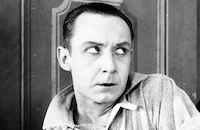
Franklin Pangborn
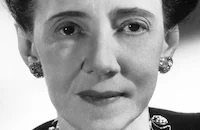
Elizabeth Patterson
Georgia Caine
Al Bridge

Freddie Steele
Bill Edwards
Harry Hayden
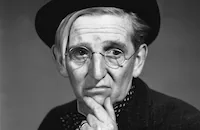
Jimmy Conlin
Jimmy Dundee
Esther Howard
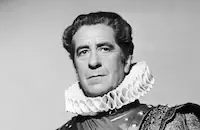
Robert Warwick
Len Hendry
James Damore
Stephen Gregory
Victor Potel
Merrill Rodin
Jack Norton
John Sinclair
Torben Meyer

Chester Conklin
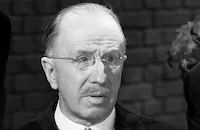
Arthur Hoyt
George Melford
Frank Moran
Tom Mcguire
Philo Mccullough
Franklyn Farnum
Kenneth Gibson
Paul Porcasi
George Anderson
Julie Gibson
Mildred Harris
Ida Raphael
Dot Farley
Marjean Neville
Maxine Fife
Allen Ray
Pauline Drake
Charles Moore
Miriam Franklin
The Guardsmen
Crew
A. M. Asher
William Austin
Richard Blaydon
Charles W. Bradshaw
Lew Brown
Teet Carle
Thelma Courtmarsh
Howard Davis
B. G. Desylva
Robert Emmett Dolan
Haldane Douglas
Hans Dreier
Harve Foster
Stuart Gilmore
Evelyn Glatt
Ray Guy
Duffy Hamener
Edith Head
Joe Herrington
Werner Heymann
Warren Hoag
Jack Hoffman
Dick Johnson
La Prele Jones
Howard Joslin
Joe Keller
Sigmund Krumgold
Ernst Laemmle
Oscar Lau
Eugene Liggett
Joseph J. Lilley
Frank Loesser
John Macneil
Robert Mayo
Walter Mcleod
Gene Merritt
Emie Moore
Frank Moran
John Robert Murphy
Wallace Nogle
Ed O'toole
Walter Oberst
Webb Overlander
Otto Pierce
Bill Rand
Gertrude Reade
John F. Seitz
Stephen Seymour
Theodor Sparkuhl
Chet Stafford
Harlow Stengel
Preston Sturges
Preston Sturges
Preston Sturges
Walter Taylor
Walter Tyler
A. H. Van Koughnet
Wally Westmore

Videos
Movie Clip





Hosted Intro
Film Details
Technical Specs

Award Nominations
Best Writing, Screenplay
Articles
Hail the Conquering Hero
Hail the Conquering Hero was small in scale and Sturges designed it so that it could be filmed on the sets left over from The Miracle of Morgan's Creek (1944), released the same year. Sturges had been so impressed with Eddie Bracken's work in The Miracle of Morgan's Creek, that he cast him in a similar role for Hail the Conquering Hero. This time, however, Bracken would not have to share the stage (and be upstaged) by his frequent co-star, Betty Hutton. Bracken plays Woodrow Lafayette Pershing Truesmith, the sickly son of a Marine hero whose image Bracken could never hope to live up to (Bracken's mother keeps a shrine to her husband prominently displayed in her home). When he is dismissed from the service due to his chronic hay fever, Bracken is so ashamed that he decides not to return home. Instead he gets a job in a shipyard and has friends send his mother and girlfriend letters from the Pacific so they will think he is still away fighting. When he meets some real war heroes, just back from Guadalcanal, Bracken mistakenly tells them his whole sad story. Unfortunately, one of the Marines, Bugsy (brilliantly played by Freddie Steele), is the victim of both shell shock and a mother complex. Bugsy's refrain throughout the picture is, "You shouldn't do that to your mother." And so to set things right by Mom, Bugsy calls Mrs. Truesmith (Georgia Caine), and tells her that her son is a war hero and will soon be home. Woodrow's hay fever becomes jungle fever and soon he is stuck playing a hero.
As was customary with such a picture, the War Department reviewed the script and asked for some revisions, mostly pertaining to depictions of servicemen. But Sturges' script was far from seditious and the revisions he was forced to make were minor. Even with such a review, Sturges managed to make fun of the ease with which military heroes were made. As the Mayor comments: "Why if this war continues, you won't be able to swing a cat without hitting two heroes." Like all of Sturges' films, Hail the Conquering Hero is maniacally fast-paced with overlapping dialogue and punch-lines that come so fast you'll miss one if you laugh too hard. According to Monty Python member and director, Terry Jones: "There's not a dud scene or a spare moment. It's like a wonderful piece of clockwork - all the scene has been set, the back stories told, the characters established while Woodrow is on the train home. Once he steps off it, the rapid series of events toboggan towards their climax with wondrous momentum."
As usual, Sturges employs his unofficial troupe of oddball character actors, most notably William Demarest, Jimmy Conlin, Chester Conklin and Raymond Walburn. Demarest appeared in all eight of Sturges' Paramount films, and in each, his bug-eyed irascible character was a standout. But Sturges' reliance on bit players brought him into repeated conflict with the studio, which asked him to hire some new talent. "I always replied that these little players who had contributed so much to my first hits had a moral right to work in my subsequent pictures. I guess Paramount was glad to be rid of me eventually, as no one there ever understood a word I said."
Sturges' break with Paramount was, in part, the result of the writer-director's continual conflict with Paramount boss Buddy DeSylva. According to Sturges, the final battle began when DeSylva saw some early rushes of Hail the Conquering Hero and objected to the casting of newcomer Ella Raines as Bracken's love interest. DeSylva thought that Raines didn't look enough like a small-time girl and that her acting was wooden. In addition, Raines was not enough of a box-office draw. With a cast of Bracken, Demarest and Raines, the studio had no star power with which to sell the film. The only draw was that Sturges made it, and despite his recent string of hits, Sturges was no Cecil B. DeMille, Paramount's top director whose name alone could bring patrons to the theaters. DeSylva demanded that Sturges replace Raines with a better-known actress, but Sturges refused. As Sturges recalls: "I said that had Buddy been there and objected to her casting at its inception, I would of course have agreed. But to have her thrown off the picture after she had been announced for the part and had started shooting, with all the publicity that engendered, would ruin her career. It seems very unimportant now whether she was kept in or thrown out. It seemed very important then. I had read Cervantes. I should have known about tilting at windmills." (That same year saw Raines in memorable roles in both the Robert Siodmak thriller Phantom Lady [1944] and opposite John Wayne in Tall in the Saddle [1944], but her film career proved short-lived and she retired in 1957.)
Sturges' contract with Paramount was over before the film was completely edited but Sturges took his leave and monitored the film's progress from afar. DeSylva made his own cuts to the picture, but after The Miracle of Morgan's Creek was released in January and became a box-office smash, DeSylva reluctantly accepted Sturges' offer to come back to Paramount (without pay!) and once again take charge. He reshot some additional scenes, wrote a new ending and restored the film to its original state. DeSylva let Sturges' efforts stand and Hail the Conquering Hero was released in August of 1944 to uniformly excellent reviews. In the New York Times, Bosley Crowther declared the movie to be "one of the wisest ever to burst from a big-time studio." Sturges was pleasantly surprised by the reviews and wrote that, "It proves that a good story can lick its weight in stars and pomposity any day."
Sturges was nominated for Best Original Screenplay, which put him in competition with himself as his script for The Miracle of Morgan's Creek was also nominated in the same category. In the event, neither of Sturges' efforts was rewarded and the statue went home with Lamar Trotti for his biopic, Wilson (1944). Sturges also wrote an ironic song for the film, "Home to the Arms of Mother," which he sold to Paramount for one dollar.
Bracken gives the performance of his career as Woodrow and his relationship with Sturges was so good that it seems the director even allowed Bracken to make some directorial suggestions. According to Bracken, the speech where Woodrow finally confesses the charade was originally intended by Sturges to be faster than what appears in the film. "You know, his pictures go snap, snap, snap, as fast as you can follow them. That's the way he thought a particular speech should go, too. But I thought it was too good a speech for that. It should be slow and tender with time to get it over. So we shot it both ways, his and mine. It's mine that's in the picture."
Producer/Director/Screenplay: Preston Sturges
Cinematography: John F. Seitz
Editing: Stuart Gilmore
Music: Werner R. Heymann
Art Direction: Haldane Douglas, Hans Dreier
Cast: Eddie Bracken (Woodrow Lafayette Pershing Truesmith), Ella Raines (Libby), Raymond Walburn (Mayor Everett D. Noble), William Demarest (Sergeant Heppelfinger), Franklin Pangborn (Committee Chairman), Elizabeth Patterson (Libby's Aunt), Jimmy Conlin (Judge Dennis), Georgia Caine (Mrs. Truesmith), Freddie Steele (Bugsy).
BW-101m.
By Mark Frankel

Hail the Conquering Hero
Quotes
Oh death where is thy sting?- Committee Chairman
I thought the Marines could do anything, but I had no idea they could do anything like this.- Woodrow
Kid, you got no idea!- Marine
She forgets her lines 'til rigor mortis sets in!- Mayor Noble
These flapjacks might taste better with a little butter on 'em Mrs. T.- Sergeant Heppelfinger
Maybe you haven't heard Sgt. but there's a war on.- Mrs. Truesmith
Trivia
Notes
Preston Sturges' onscreen credit reads: "Written and directed by Preston Sturges." The working titles of this film were Once Upon a Hero and The Little Marine. According to information in the Paramount Collection at the AMPAS Library, an early, tentative title for the production was Praise the Lord and Pass the Ammunition. (Although The Human Strongbox was announced first in 1943 as a Preston Sturges-directed Eddie Bracken picture for Paramount, it bears no relation to this film, and was later announced as a title for a 1946 Harold Lloyd picture that was never made.) Modern sources and Preston Sturges' autobiography note that at the time he made Hail the Conquering Hero, Sturges was embroiled in a conflict with Paramount. Paramount executives wanted to replace actress Ella Raines in the film, but Sturges refused to comply as shooting had already begun. Due to additional conflicts with Paramount, including editorial control and censorship problems with his previous two pictures, The Miracle of Morgan's Creek and The Great Moment, Sturges left the studio upon completion of this film. (Although The Miracle of Morgan's Creek and The Great Moment were produced before Hail the Conquering Hero, they were released after it.) According to modern sources, as Sturges had already left the studio, producer B. G. DeSylva had this film re-cut without him after an unsuccessful preview in New York. However, after yet another unsuccessful preview, Sturges returned and rewrote and reshot the ending in April 1944.
This film marks ex-boxer Freddie Steele and Stephen Gregory's feature film debuts. Sturges was nominated for two Academy Awards in 1944 for Best Original Screenplay for this film, and for The Miracle of Morgan's Creek. Many modern critics consider Hail the Conquering Hero as Sturges' best film.

Miscellaneous Notes
Released in United States 1944
Released in United States 1974
Released in United States on Video November 15, 1990
Re-released in United States on Video June 30, 1993
Released in USA on laserdisc October 26, 1994.
Released in United States 1944
Released in United States 1974 (Shown at FILMEX: Los Angeles International Film Exposition (The Preston Sturges Movie Marathon) March 28 - April 9, 1974)
Re-released in United States on Video June 30, 1993
Released in United States on Video November 15, 1990















